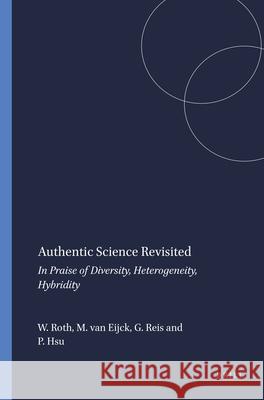Authentic Science Revisited : In Praise of Diversity, Heterogeneity, Hybridity » książka
Authentic Science Revisited : In Praise of Diversity, Heterogeneity, Hybridity
ISBN-13: 9789087906702 / Angielski / Miękka / 2008 / 248 str.
Since its appearance in 1995, Authentic School Science has been a resource for many teachers and schools to rethink and change what they are doing in and with their science classrooms. As others were trying to implement the kinds of learning environments that we had described, our own thinking and teaching praxis changed in part because of our dissatisfaction with our own understanding. Over the years, we have piloted ever-new ways of organizing science lessons to figure out what works and how both successful and not-so-successful ways of doing science education should be theorized. In this period, we developed a commitment to cultural-historical activity theory, which does not dichotomize individual and collective, social and material, embodied and cultural forms of knowing, and so on. It turns out now that the problem does not lie with the level of agreement between school science and laboratory science but with the levels of control, authority, mastery, and authorship that students are enabled to exercise. Thus, as this book shows, even field trips may deprive students of science authenticity on outdoor activities and even classroom-based science may provide opportunities for doing science in an authentic manner, that is, with high levels of control over the learning environment, authority, master, and authorship. Ultimately, our understanding of authenticity emphasizes its heterogeneous nature, which we propose to think in terms of a different ontology, an ontology of difference, which takes mixtures, heterogeneity, and hybridity as its starting point rather than as poor derivatives of self-same, pure entities including science, scientific concepts, and scientific practice. In Authentic Science Revisited, the authors offer a refreshing new approach to theorizing, thinking, and doing authentic science.











